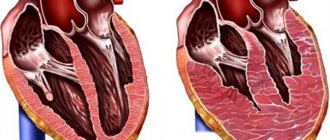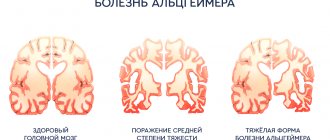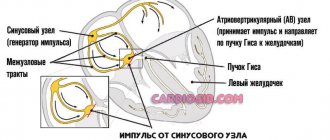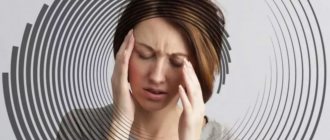What is dizziness?
True dizziness or vertigo is a condition during which patients have a feeling of rotation of surrounding objects around them or a false sensation of their own movement or rotation.
An example of true dizziness, but not in any way related to the disease, is the dizziness that appears in people after riding a carousel, when, after an abrupt stop, they continue to see the movement of surrounding objects relative to themselves, as if the carousel were still in motion.
In most cases, the occurrence of true dizziness is a symptom of diseases of the system of control of balance and body position in space. This system includes the eyes, the vestibular apparatus of the inner ear, and sensory receptors in the human muscles, joints, and bones. Very often, dizziness, which is caused by a disruption in the balance system, is accompanied by nausea and vomiting.
Main causes of the symptom
Dizziness can be a symptom of a number of diseases and pathological conditions that lead to disruption of the vestibular apparatus. These are congenital or acquired disorders of varying severity, with different mechanisms of development and characteristics of clinical manifestations. Among the most common groups of causes of this symptom are the following:
- inflammatory diseases of the inner ear and vestibular nerve - can be of infectious or non-infectious origin;
- intoxication and poisoning, which lead to disruption of the vestibular apparatus;
- traumatic brain injuries - when certain areas of the cerebral cortex are damaged, dizziness may appear after a long time;
- metabolic disorders, including diabetes.
Impaired balance and coordination of movements in space can also be a variant of the norm. In some cases, intense irritation of the vestibular apparatus occurs (on a carousel, during a long stay on a ship or on another unstable support), after which the nervous system needs time to recover. It is impossible to determine the cause of dizziness at home, especially if it is a consequence of organic lesions of the central nervous system.
Symptoms other than dizziness
As can be seen from the above, the term “dizziness” has a rather narrow medical interpretation (a false sensation of rotation of surrounding objects or one’s own rotation). But, despite this, people also use this term to refer to other symptoms that are not actually dizziness. So, most often “dizziness” is called such phenomena as:
- darkening in the eyes after abruptly rising to your feet from a sitting or lying position;
- a veil before the eyes;
- feeling of imminent loss of consciousness (fainting);
- weakness, nausea, feeling of confusion and unsteadiness in the legs;
- feeling of unsteady gait and impaired balance.
When a person suffering from dizziness comes to see a doctor, he should describe his condition, how he is feeling and the symptoms he is experiencing as accurately as possible, and not simply say that he suffers from “vertigo.” The further examination and treatment plan will depend on the accuracy of the description of the existing symptoms.
In contrast to true dizziness, which appears due to a disruption in the functioning of a person’s balance system, false dizziness, which patients describe as a feeling of weakness, instability, darkening in the eyes, blurred vision, etc., can most often be a sign of anemia, chronic fatigue , hypovitaminosis, hypotension and vegetative-vascular dystonia. In addition, fainting, episodes of lipothymia (a sharp decrease in muscle tone with great physical stress) and short-term attacks of epilepsy can also be confused with dizziness.
We pay special attention to attacks of sudden dizziness and weakness in people who have diabetes. In this category of patients, dizziness and weakness may indicate a dangerous decrease in blood glucose levels.
Headache treatment
Doctors at the Yusupov Hospital take a comprehensive approach to the treatment of headaches, depending on the identified cause of its occurrence. In each specific case, treatment is selected individually. Therapy includes relieving headache attacks and treatment during the inter-attack period. Neurologists use the following treatment methods:
- drug therapy with the latest drugs;
- acupuncture;
- psychotherapy;
- autogenic training;
- manual therapy (to relieve muscle tension during tension headaches).
Rehabilitation clinic specialists prefer to use gentle manual techniques. The rehabilitation specialists at the Yusupov Hospital have the following innovative methods of non-drug treatment in their arsenal:
- biofeedback;
- various types of massage;
- kinesitherapy;
- physiotherapeutic treatment;
- laser therapy.
Doctors include effective medications in their headache treatment regimen. The variety of causes of headaches, which doctors at the Yusupov Hospital identify during a comprehensive examination, also determines individual approaches to the treatment of each individual patient in the neurology clinic, where there is a full arsenal of diagnostic and therapeutic assistance for headaches. If you have symptoms such as headache, nausea, weakness, make an appointment by calling the Yusupov Hospital.
How does the human balance system work?
In most cases, true (central, systemic) dizziness is a manifestation of various diseases of the system that provides balance and control of body position in space. This system consists of the following 3 components:
- The vestibular apparatus, which is located deep in the skull, where sensitive receptors are located that respond to the angular or linear acceleration of the body in space.
- Eyes that provide visual information about the location of the body and its parts in space, as well as in relation to other objects.
- Sensitive receptors (proprioceptors) that are found in human bones, joints, muscles and ligaments. They provide reliable information about the position of body parts in space, as well as relative to each other.
All these 3 components of the balance system simultaneously send information to the brain, where it can be analyzed and processed into a person’s idea of his position in space and relative to other objects.
If for any reason the data that comes from one of the sources is distorted (for example, irritation of the receptors of the vestibular apparatus by an inflammatory reaction when there is no movement and acceleration), then an incorrect idea is created in the brain about the position and movement of the human body in space . Then an illusory sensation of movement or rotation arises, when in reality the body is motionless.
The causes of a disorder in a person’s balance system can be very different. Nowadays, more than 80 diseases are known that can cause dizziness. Below we describe the most common causes of dizziness.
Symptoms of dizziness
Dizziness (the medical term is “vertigo”) is disorientation in space. It seems to a person that he is rotating and moving, although in fact he is motionless. It also happens the other way around - you get the feeling that everything around you is spinning and moving - objects, trees, the ground under your feet.
The sensations can be different - from rotational movements to the impression of instability, when everything around (or you yourself) trembles, staggers, moves. The body or parts of it may appear to be moving. Describing their condition, many say that they feel like they are in a strong sea motion or riding on a swing.
Additional symptoms when feeling dizzy:
- My head is spinning.
- An illusion of mobility of your body or surrounding objects is created.
- Nausea, weakness, and even fainting appear.
- Cold sweat appears.
- Heart rate increases.
- Fear and panic appear.
- Legs or arms go numb.
- Hearing deteriorates or ringing in the ears bothers you.
You may feel suddenly dizzy for a few seconds or longer - up to half an hour, an hour or a constant feeling. The frequency of attacks also varies - some experience them regularly under certain conditions, while others experience them only a couple of times in their lives. Some patients notice frequent patterns when dizziness appears. These could be trips in transport, experiences.
Dizziness: the most common causes and forms
According to modern research, most often this disease is a symptom of diseases such as:
- BPPV (benign paroxysmal positional vertigo);
- basilar migraine;
- psychogenic dizziness;
- Meniere's disease;
- osteochondrosis of the cervical spine, as well as vertebrobasilar insufficiency;
- vestibular neuritis;
- brain tumors.
Note that BPPV accounts for more than 80% of cases of true dizziness. Below we will consider the main diseases that are accompanied by dizziness, and also describe the characteristics of dizziness in each case.
1. Benign paroxysmal positional vertigo is one of the most common forms of true vertigo. The name itself is deciphered as follows: “benign” means a favorable, harmless course of the disease, “paroxysmal” means the sudden onset of dizziness; “positional” - the appearance of dizziness when turning the head in a certain direction.
The reason for the development of BPPV is irritation of the receptors of the vestibular apparatus by otolith stones, which are located in the semicircular canals of the inner ear. This disease can also occur spontaneously in a person of any age, but in most cases it appears in people over 50-60 years old, after an injury or infection.
The main symptoms of benign positional vertigo are:
- the occurrence of severe dizziness when tilting or turning the head, when turning in bed, when throwing the head back;
- severe dizziness lasts from several seconds to several minutes, and it may be accompanied by weakness, severe nausea or vomiting;
- attacks of dizziness can appear in series, after which they disappear without a trace for some time.
Treatment of BPPV is carried out with a special exercise, and always under the supervision of a neurologist. Its duration is only 1-2 minutes, and its effectiveness reaches 90%.
2. Dizziness with migraine. Migraine is one of the most common types of headaches. In some cases, during a migraine attack, blood circulation is disrupted in the areas of the brain that control the functioning of the vestibular apparatus, which causes severe dizziness, after which a severe headache in the back of the head may immediately develop, imbalance may occur, vomiting, noise and light intolerance may occur. . Some people with migraines may only have severe dizziness and nausea, but no headache. In children, one of the precursors of migraines in adulthood are attacks of severe dizziness, imbalance, nausea, vomiting, which over time turn into typical migraine attacks.
3. Psychogenic dizziness ranks second in prevalence after BPPV. But unlike it, psychogenic dizziness is not true dizziness, since it is not associated with disturbances in the functioning of the vestibular apparatus.
The main characteristics of this disease:
- description of dizziness as a feeling of fog in the head, confusion, fear of falling and losing consciousness, but not as one’s own spinning or other objects;
- attacks of dizziness occur spontaneously, often under stress, in a confined space (transport, elevator), as well as in crowded places;
- in addition to dizziness, patients have other complaints that resemble some diseases of the internal organs: a lump in the throat, soreness, pain in the chest, abdomen or in the heart area, pain and tension in the muscles, a feeling of lack of air, a feeling of tension and internal fear, anxiety, irritability, anxious sleep, strong and unreasonable concern about one’s own health, as well as the health of loved ones, etc.
Psychogenic dizziness can also be considered one of the most common manifestations of VSD (vegetative-vascular dystonia). Particularly often, attacks of false dizziness can be observed in patients with anxiety disorders and panic attacks.
Determining the psychogenic nature of dizziness plays a big role in determining the correct treatment, so if you have an idea that dizziness in your case may be psychogenic, we recommend that you study information about vegetative-vascular dystonia, as well as its treatment.
In particular, with psychogenic dizziness, treatment that is intended for VSD (sedatives, psychotherapy) will be much more effective than specific drugs for dizziness, prescribed for all cases of true dizziness.
4. Dizziness with Meniere's disease. This disease is characterized by periodic attacks of severe dizziness and deafness (usually in one ear), gradually leading to hearing loss.
At the moment, the exact cause of Meniere's disease is still unknown. But there are suggestions that in some cases it may be caused by injury, viral infections or allergies.
A typical manifestation of Meniere's disease is an acute attack of severe dizziness, which lasts several hours or days and is accompanied by nausea, vomiting, tinnitus, hearing loss (in one ear) and a feeling of pressure inside the ear.
Typically, attacks of this disease appear one after another over several weeks, after which they disappear for some time, but then begin again.
5. Dizziness due to osteochondrosis, as well as vertebrobasilar insufficiency, neck and head injuries. As we have already said, the work of the human balance control system involves sensitive receptors of the muscles, bones, joints, ligaments of the whole body and mainly the muscles, bones and ligaments of the neck.
Degenerative diseases of the cervical spine, including osteochondrosis, are one of the most common causes of dizziness, which patients often describe as unsteady gait and rarely as a feeling of spinning.
Osteochondrosis of the spine disrupts the functioning of the sensory receptors in the neck, and can also cause disruption of blood circulation in the vertebral arteries, which supply blood to the parts of the brain responsible for balance and maintaining the body, located in the brain stem.
Chronic circulatory disorder in the lower parts of the brain (vertebrobasilar system) is called vertebrobasilar insufficiency. Atherosclerosis of the neck vessels and long-term hypertension (increased blood pressure) also play a certain role in its development. Most often, vertebrobasilar insufficiency occurs in older people. In addition to dizziness, it is accompanied by symptoms such as memory loss, headaches (mainly in the back of the head) and tinnitus.
Attacks of acute circulatory disorders in the vertebrobasilar region can manifest as severe dizziness, loss of consciousness, vomiting, weakness and double vision.
Injuries to the head and cervical spine (especially after car accidents) can also cause dizziness. In such cases, it is usually more pronounced in the first days after the injury and gradually decreases as the patient rehabilitates.
6. Dizziness with vestibular neuritis. This disease is an inflammation of the vestibular nerve, which carries impulses from the receptors of the inner ear to the brain. When the vestibular nerve becomes inflamed, it temporarily loses its ability to conduct impulses. This, in turn, is manifested by severe dizziness, unsteady gait, nausea and vomiting.
The main cause of vestibular neuritis is viral infections, so attacks of associated dizziness may be accompanied by weakness, fever, cough or runny nose.
7. Dizziness due to brain tumors. Some brain tumors that are located near the inner ear can cause severe and progressive dizziness.
Symptoms of a tumor, in addition to dizziness, may include the following phenomena:
- hearing loss (usually one ear);
- nausea;
- tinnitus, hearing loss;
- headache;
- the appearance of strabismus, paralysis of the facial muscles.
Dizziness as a symptom of a brain tumor is most often observed in young people and children.
Dizziness during pregnancy
False dizziness (a feeling of weakness, instability, near fainting) is very often observed during pregnancy. Attacks of dizziness in such cases are usually associated with hypotension, as well as a decrease in blood glucose concentration. We bring to your attention the following recipe, which is an effective method of treating dizziness during pregnancy:
In a mug of warm, boiled water, you need to dissolve 1-2 tbsp. l. sugar and drink immediately after waking up or before leaving the house.
Pregnant women (especially during the first half of pregnancy) should always carry water with them, and at the first sign of dizziness, try to drink as much as possible.
Cases when you should consult a doctor immediately
You should consult a doctor as soon as possible in cases where dizziness is accompanied by the following symptoms:
- increased body temperature;
- persistent vomiting;
- severe headache, weakness of arm or leg muscles;
- severe dizziness lasts more than an hour;
- during an attack of dizziness the person lost consciousness;
- when dizzy, the patient fell and was seriously injured;
- A patient with diabetes mellitus and hypertension developed severe dizziness.
Identifying the causes of headaches
The causes of headaches are determined after patients at the Yusupov Hospital undergo a comprehensive neurological examination:
- ECHO - encephalography;
- electroencephalography;
- Doppler ultrasound of head and neck vessels;
- rheoencephalography;
- radiography of the skull;
- magnetic resonance and computed tomography of the brain;
- fundus examinations.
Patients receive consultation from the necessary specialists (otolaryngologist, vertebrologist, cardiologist, oncologist). If indicated, they are consulted by leading specialists from partner clinics.
Diagnosis of dizziness
Diagnosis and treatment of dizziness is carried out by neurologists, vertebrologists, otorhinolaryngologists and ophthalmologists. In order to clarify the cause of dizziness, as well as prescribe the correct treatment, a patient with dizziness must undergo a series of examinations:
- Doppler ultrasound of the main arteries of the head;
- examination by an ophthalmologist;
- audiographic examination;
- CT (computed tomography) or MRI (magnetic resonance imaging);
- X-ray of the skull and cervical spine.
Diagnostic methods
To understand why the patient feels sick, sick, and dizzy, a full examination should be performed. Various techniques are aimed at identifying hidden pathologies that require specific treatment. During the initial examination, the doctor collects medical history data. It is important to describe in as much detail as possible under what conditions the headache begins, how often attacks occur and how long they last. To confirm the diagnosis, the following techniques may be needed:
- first of all, measuring blood pressure; the patient is also recommended to monitor it at home;
- tests to check balance, including the Romberg test (deterioration in coordination of movements is manifested by staggering in a standing position, with eyes closed, feet shifted and straight arms extended forward);
- a general blood test will indicate inflammatory processes, as well as various types of anemia;
- blood test for glucose levels;
- heart examination, which includes ultrasound diagnostics and electrocardiogram;
- tests to assess hearing and visual acuity;
- X-ray of the cervical spine;
- study of blood flow in the vessels of the neck and head - a contrast agent is used for this;
- electroencephalography - analysis of the bioelectrical activity of brain cells;
- computer or magnetic resonance imaging is the most accurate, informative way to examine the brain, including soft tissues and blood vessels, which allows you to obtain a complete image of the affected area.
At the Clinical Institute of the Brain, you can undergo a complete diagnosis and determine the causes of nausea, dizziness, and headaches. The regimen is selected individually, based on the results of the initial examination of the patient. An experienced doctor will prescribe only those studies and tests that will determine the nature of the pathology. This is the most important stage in solving the problem, since the diagnostic results allow you to select the most effective treatment regimen.










